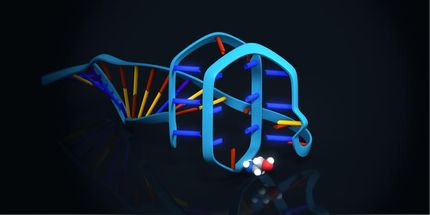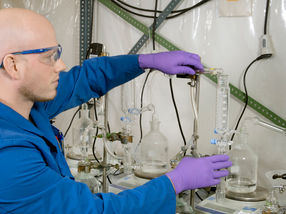Eight of the total of 16 Reference Laboratories within BfR have been newly appointed
Reference laboratories are of key importance for consumer health protection. Together with the public agencies of the federal states, they elaborate the standards for the work of the test laboratories involved in food monitoring. Reference laboratories act as an arbitrator when it comes to unclear or disputed findings. They develop and validate new test methods for the reliable detection of harmful substances and micro-organisms in foods, consumer articles and products that will stand up in court. A high level of expertise and scientific standards in experimental work are, therefore, the fundamental precondition for appointing a laboratory in a scientific institute as a reference laboratory. "The fact that 16 out of the 35 National Reference Laboratories are within the Federal Institute for Risk Assessment testifies to the high scientific quality of our work", commented BfR President Professor Dr. Dr. Andreas Hensel.
In the field of food safety National Reference Laboratories (NRLs) are appointed by the Federal Minister of Food, Agriculture and Consumer Protection on the basis of European legal provisions and then notified to the European Commission. The appointment is preceded by an application procedure in the course of which the most qualified participants for the reference activities are selected by the experts. At the beginning of November 2006 Federal Minister Horst Seehofer informed the European Commission which institutions in Germany will, in future, act as National Reference Laboratories.
Besides developing analytical methods and this arbitration role, the tasks of reference laboratories also include initial and continuing training schemes for experts from the regulatory authorities of the federal states and the provision of reference material. Reference material consists of samples with known contents of the substances or micro-organisms to be examined. Samples of this kind are used to examine the method applied and are, therefore, essential for quality assurance. In some microbial National Reference Laboratories (e.g. the NRL für Salmonella and the NRL for Escherichia Coli and verotoxin-forming E. coli), the germs isolated (isolates) from food or environmental samples sent in by the regulatory authorities of the federal states are analysed and characterised using state-of-the-art serological and molecular biological methods. The objective is to determine the possible harmfulness of the germs and their ability to trigger disease in humans via dietary uptake.
BfR now has the following National Reference Laboratories: NRL for Salmonella, NRL for monitoring marine biotoxins, NRL for monitoring viruses and bacteria in bivalve molluscs, NRL for Listeria monocytogenes, NRL for coagulase-positive staphylococci including Staphylococcus aureus, NRL for Escherichia coli including verotoxin-forming E. coli, NRL for Campylobacter, NRL for Trichinella, NRL for antibiotic resistance, NRL for animal protein in feedstuffs, NRL for additives for use in animal nutrition, NRL for food contact materials, NRL for mycotoxins, NRL for dioxin and PCBs in feed and food, NRL for the epidemiology of zoonoses and Senior Expert Office for foreign wine inspection.
Most read news
Other news from the department politics & laws

Get the analytics and lab tech industry in your inbox
By submitting this form you agree that LUMITOS AG will send you the newsletter(s) selected above by email. Your data will not be passed on to third parties. Your data will be stored and processed in accordance with our data protection regulations. LUMITOS may contact you by email for the purpose of advertising or market and opinion surveys. You can revoke your consent at any time without giving reasons to LUMITOS AG, Ernst-Augustin-Str. 2, 12489 Berlin, Germany or by e-mail at revoke@lumitos.com with effect for the future. In addition, each email contains a link to unsubscribe from the corresponding newsletter.














































